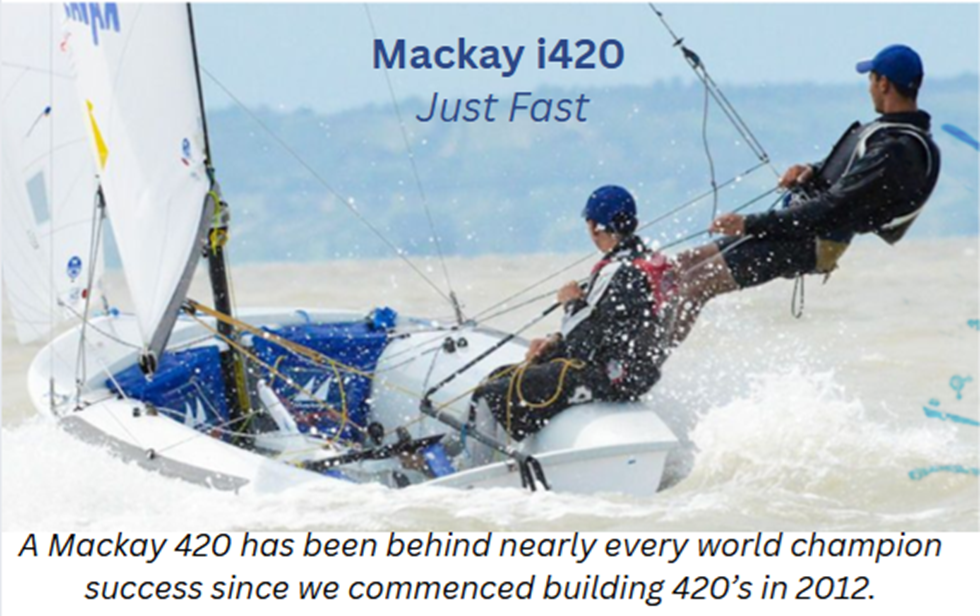By Airwaves writer Emma White Spring Tune Up—Tips from the Experts
As one-design sailors prepare for major spring and summer regattas, and maybe even Rio, this is the first in the series of featured articles on accomplished one-design sailors. We hope that their words of wisdom and experiences will benefit all sailors.
Russ Silvestri Many of you will know Russ Silvestri from his impressive achievements in the Finn Class. He won the Finn North American Championship three times, and in 1999, he brought home a silver medal in the Pan American Games for the Finn. Russ placed sixth in the 2000 Sydney Olympics and achieved the Outstanding Male Athlete Award by the US Olympic Committee. Also very skilled in the Etchell fleet, he took second at Etchell Worlds in 1984 and won the North American Championship in 1990. Some readers may know Russ for his J22, Sonar and match racing achievements, too.
He got his start in sailing around the age of five on the family boat with his father and grandfather. The family went out almost every weekend and he fell in love with it. As he reflects on his sailing experience, his favorite venues are San Francisco Bay, Sydney Harbor and Newport Yacht Club.
Tips.
During my conversation with Russ last week, he shared many helpful tips including these:
• Focus on What You Can Control
When asked how he copes with stress before a big regatta, Russ responded: “prepare,” and focus on what you can control. By keeping your mind on the controllable and lots of practice, stress can be managed and reduced.
• The Start is Key
Many sailors would agree with Russ in that the start is the most important part of the race. In order to practice nailing down a first row start every time, Russ suggests match-racing. Match-racing builds skill in controlling your boat. It also focuses on time and distance. Once control, time and distance are locked down, you should feel confident in your boat handling and be ready to kill the start.
• Acknowledge Two Different Modes of Racing
Russ identified two different modes of racing the course, absolute and relative. When racing the course “absolute,” the focus of you and your crew members should be on shifty conditions or “banging a corner.” In this mode, sailors prioritize the changing velocities of wind. The relative mode of racing is when you race the competition. Concentrate on lee bowing a pack of boats, protecting the right, or tacking inside a group of boats at the windward boat. In other words, in this mode of racing, you should be more oriented about how to get ahead or lead a pack of boats.
• Training
Sailing is physically demanding, especially on San Francisco Bay. To keep in sailing shape, Russ favors getting on a bike and a rowing machine. Other basic activities are beneficial as well, such as isometric hiking, core work, pull-ups, pushups, and balance activities.
• On the Water Practice
Russ uses three critical on the water drills:
1. Definitive Time and Clear Winner – In this drill, group up with a buddy or several other fellow sailors. Go in a straight line together for ten minutes. Each boat should be working on boat handling and speed to win the drill. At the end of the exercise, there will be a clear winner.
2. Interval Training – Russ completed this drill many times during his Finn and Laser training. Again, set up in a line with other sailors. For one minute sail and hike as hard as possible. At the end of the minute rest and then do it again.
3. Nailing Down Each Maneuver – This final activity I found most interesting and is something that I will definitely be working on with my crew, Grace Lucas, as we prepare for spring and summer sailing. Have a playbook. Each maneuver, every possible race scenario, and each crew member’s task should be written in this book. That way, when approaching a crowded mark on port tack, or for any other critical moment, there will be no confusion as to what the game plan is. In preparation for regattas, review the play book so practically every situation in the race course will be in your control.
• Weather Resource
Russ’ favorite weather resources are iWindsurf, which has awesome models, and SailFlow.
• Limiting Distractions in the Race to Rio
One of Russ’ favorite quotes is “Success = Skill + Commitment – Distractions.” Limiting distractions may be hard, but is crucial for olympic training. During his olympic campaigns, Russ did not work so that every possible hour he could spend training and working toward his goal. You must have a singular focus: sailing.
• Diversify Racing
Russ also advises to diversify racing. He says that racing in different boats is extremely helpful. If you are a skipper, crew for an extremely talented sailor. Learn different and new techniques and then compare them to your own. Also, try other forms of racing. If you are used to only fleet racing, try match racing or team racing – it will build confidence and skill.
Be a sponge. Soak up as
much outside information as possible.
• Love the Sport
Possibly the most important advice of all: You have to love sailing to succeed. All sailors are in it to win it. This means that they will all practice and train just as hard and at such a high level of sailing, loving the sport will make all the difference.
Torn between which one-design class is his favorite to sail, Russ praises the Laser for its simplicity, and the Finn for its demanding physicality. In 2014 you can expect to see Russ and his family on the San Francisco Bay competing in Friday Night Races. No doubt he will have the rig set up right and the sails trimmed for speed.


Leave a Reply